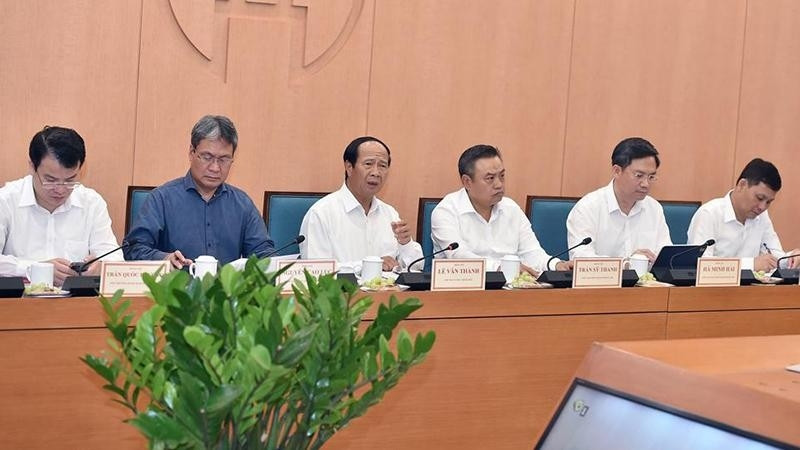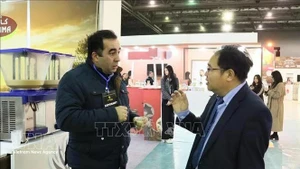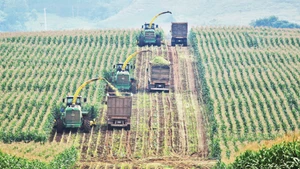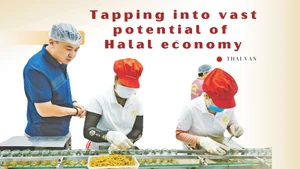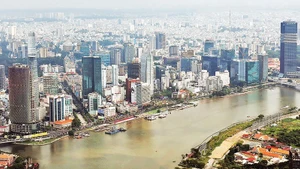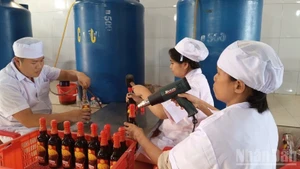Disbursement should reach 90% at the end of December 2022 and be fully completed in January next year, the Deputy PM told local leaders at a meeting on August 26.
However, he said project quality and legal issues must also be examined, noting that disbursement should go in tandem with progress.
Thanh asked the municipal Party Committee and People’s Committee, as well as departments and districts in Hanoi, to work to complete a number of projects by the end of this year, thus creating new momentum for the capital.
Hanoi needs to focus its resources on key projects which face no obstacles in site clearance and investment procedures, while reviewing pending ones.
Chairman of the People’s Committee Tran Sy Thanh reported at the meeting that Hanoidisbursed some 15.32 trillion VND (654.22 million USD) over the past eight months, equivalent to 30%, below the national average.
The city has organised six working groups to find the reasons and classify projects to put forth solutions, he said, explaining that the sluggishness was due to problems in land clearance, the impacts of the COVID-19 pandemic, and slow preparation.
As a result, the committee requested intensified disciplinary and transparency measures, and asked district People’s Committees to speed up disbursement, while holding investors responsible for the work, he said.
To step up the 2022 public investment plan, the committee proposed amending the 2019 Law on Public Investment, especially regulations on changes to public investment plans.
The city also suggested the Ministries of Planning and Investment, Finance, Transport, Construction and Justice to help it remove procedure obstacles during the implementation of ODA projects, mainly on urban railways.
Under newly-issued plans, Hanoi will be transformed into a globally-connected city and a regional economic hub by 2045, with high living conditions and comprehensive growth.
Party General Secretary Nguyen Phu Trong has signed a decision to issue Resolution No 15 guiding the development of the Hanoi Capital Region until 2030 with a vision towards 2045.
Under the new resolution, Hanoi has been designated to become the centre for development in the Red River Delta and a key economic region of the north, with high regional and international competitiveness by 2030.
Gross Regional Domestic Product (GRDP) growth during the 2026-2030 periods is set to increase to 8-8.5 percent and the GRDP per capita is expected to reach 12,000-13,000 USD. The figure is projected to grow to 36,000 USD by 2045.
To fulfil these targets, the resolution puts forward key tasks and solutions, including continuing to raise awareness of the significant position, role and importance of the capital city; and developing the capital's economy rapidly and sustainably based on restructuring the economy in connection with renewing growth models and mobilising all resources.
It is also necessary to develop a civilised Hanoi in line with the city's role as a centre of education and training, science and technology, and healthcare, while ensuring social security and welfare.
Other tasks include improving the quality of infrastructure, urban development and management, while effectively using natural resources and protecting the environment.
They also include ensuring national defence, security, social order and safety, while promoting diplomacy, international integration and development cooperation to raise the reputation of the capital city.
Hanoi recorded average economic growth of 6.83 percent a year during the period. The GRDP per capita in 2020 reached 5,325 USD, a 2.3 fold increase from 2010. The investment environment, economic and social infrastructure and construction of new-style rural areas were also improved.
